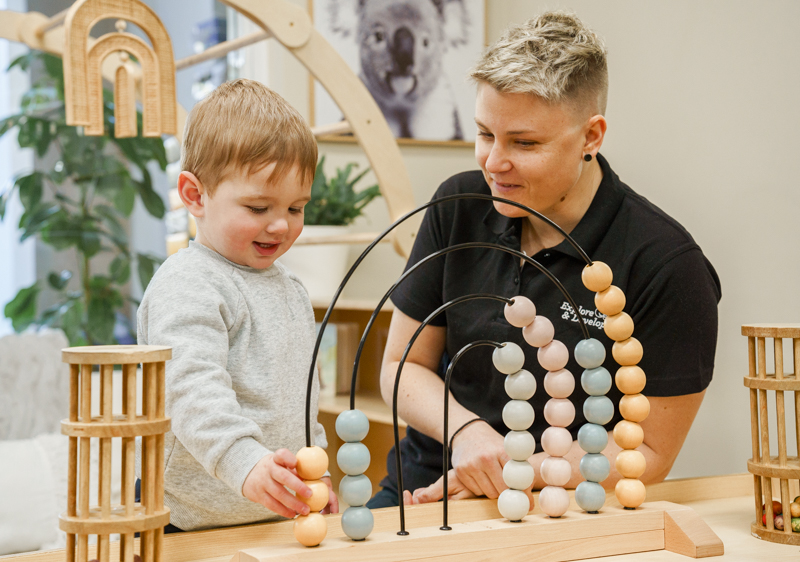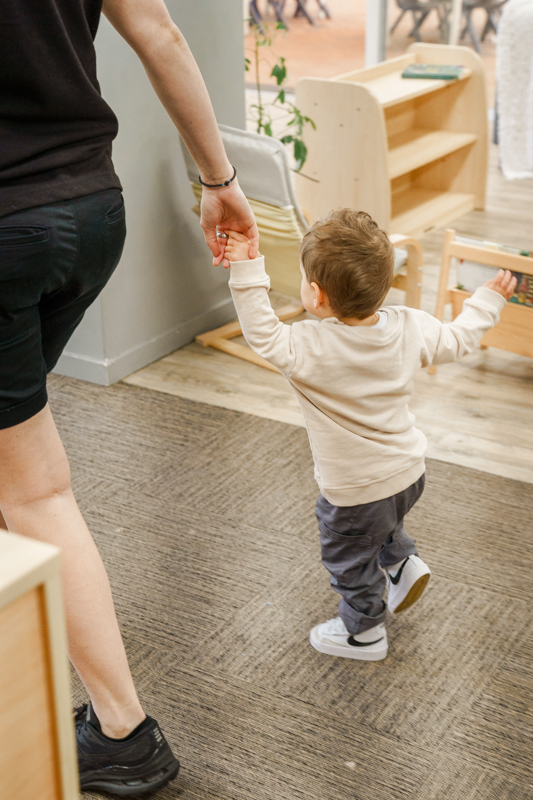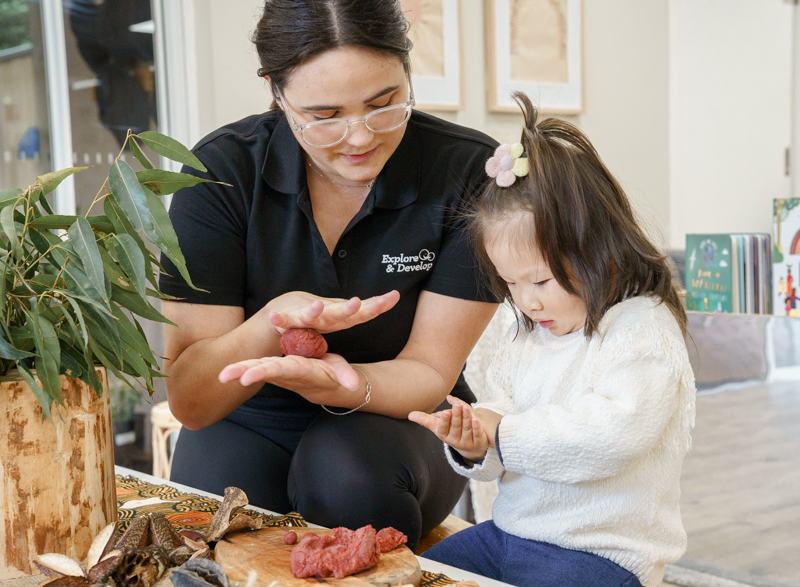
One of the major concerns parents have about starting their child at an early childhood education and care service is that their child won’t settle and adjust to care.
Children develop a sense of belonging through their relationships with family, their community, the culture around them and the places they experience. At Explore & Develop, we take the time to get to know your child and family. Building respectful, supportive relationships and creating a space where your child can feel a sense of belonging that inspires them to grow and learn is our priority.
Explore & Develop’s enrolment and orientation process is an important part of supporting a sense of belonging for children and families.
Our orientation program helps to make the transition from home to the service as smooth as possible, with the aim to maintain continuity between the home and the service. It is an opportunity to get to know each child and their family, building respectful relationships.
Our Educators put a great deal of thought and attention into creating a space for children and families to feel welcome and have a sense of belonging. A space and environment that communicates the message, ‘you are welcome, you are wanted, you belong’.

Children quickly learn how to be with others in the safety of their homes, neighbourhoods and early childhood education and care services, and their early experiences of being warmly acknowledged and responded to provide them with opportunities to become involved with and to get along with others.
Getting along with others means many things. It means listening and being heard. It means sharing and taking turns. It means being able to negotiate, compromise and work things out. Getting along means feeling valued and helping others that you’re with to feel valued too. It’s about trusting others and enabling them to trust in us.
The most significant relationships in a baby’s or child’s life are reinforced every time someone responds to them promptly in a predictable, gentle and caring way. Babies and children learn to trust those they most need – to support them in learning about the world and what it means to belong. This is why it’s so important that adults – caregivers and Educators who spend time with babies and children – become attuned to their communications and respond promptly.
Getting along with others is based on secure attachments and sensitive, responsive relationships with reliable, nurturing adults who use everyday experiences to model thoughtful interactions.

Explore & Develop’s orientation programs are planned in consultation with families. Generally, orientation consists of several visits to the service. The visits include spending time with your child and in your child’s room, getting to know your child’s Educators, the daily routine of your child’s room, the service philosophy, educational program and how Explore & Develop ensures two-way communication with families.
As well as telling you about us during your orientation visits, we want to know about you and your family, your values, culture and expectations, your child’s strengths, interests, concerns and routine at home, so as to ensure we provide the best possible education and care for your child.
Throughout your time at Explore & Develop, and particularly as your child starts with us, our focus is on building a reciprocal partnership with you. We invite, encourage and value your input. This helps us create a secure, personalised experience for your child, which in turn will make them more engaged, motivated learners and more likely to reach their full potential in life.
As your child’s social world expands, with new friendships, and as they participate in larger groups, they increasingly need to feel secure in the world beyond their home. Knowing how to communicate with others and how to be with others in mutually satisfying ways becomes increasingly important for them.
Getting along with others in larger social groups can prove tricky, but is achievable when children are supported by Educators to understand their own feelings and to be thoughtful about the feelings experienced by others. Early learning about belonging and getting along with others is highly dependent on the modelling demonstrated to them by the significant people in their lives.
‘Deep connection with others is the basis for a real sense of belonging. Supporting children to get along with others is a significant aspect of caring for and educating children at home and in early learning settings.’
Carmel Richardson, Author of ‘Belonging: At the Heart of Relating to Others’
With each Explore & Develop service being owner operated, there are many positive ‘flow on’ effects. It creates a strong, nurturing environment for Educators and families alike. The Educators benefit from the stability of a motivated leader who cares for their professional development and actively develops their career; who renumerates above award rates, and accommodates for work-life balance. The families have an accessible leader who is on-site, knows each child and family well, and is always available and present.
The starting place for this journey is by booking a tour and later attending an orientation visit with your child. Building secure, individualised attachments in relationships takes time. It takes trust, interest and and connection.